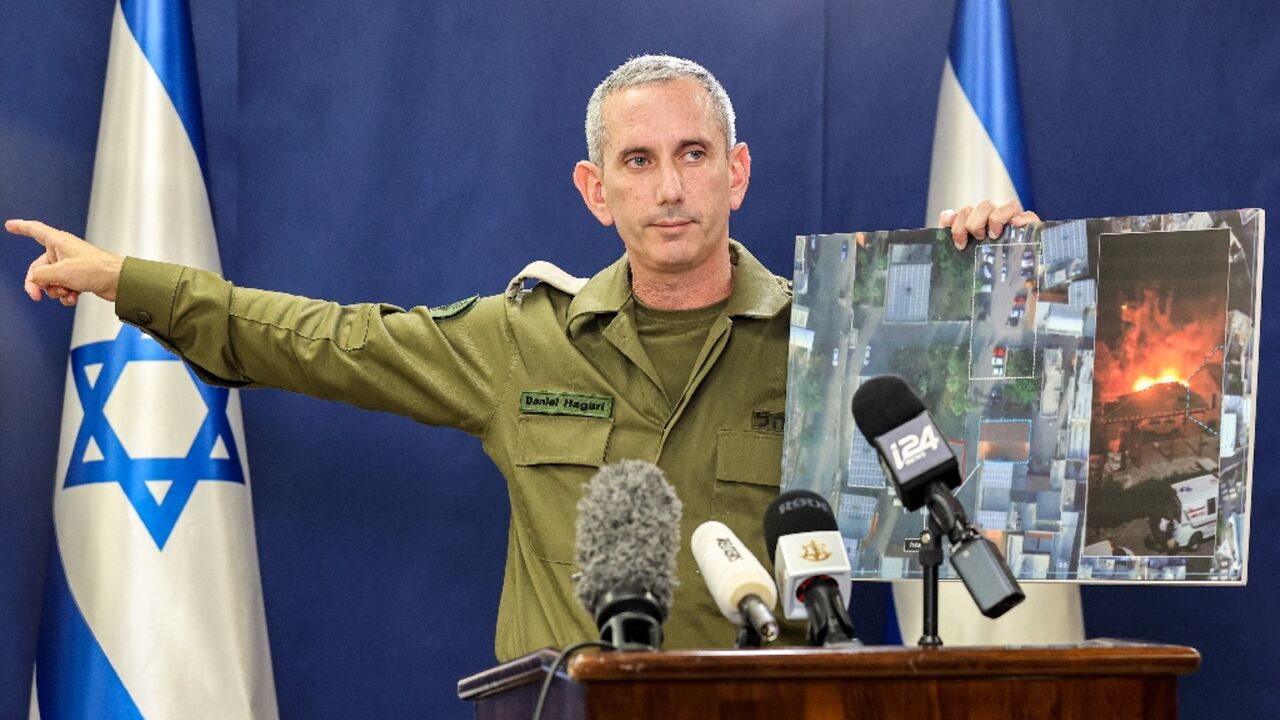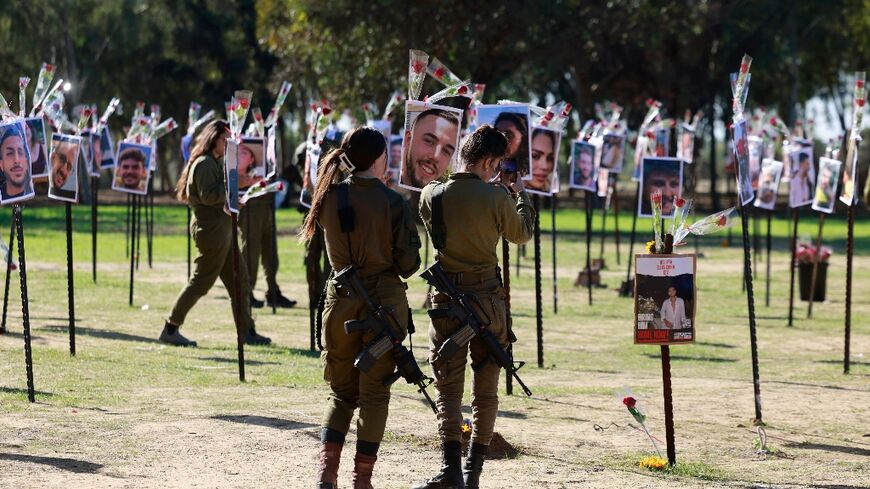Special forces veteran on front line in Israel's information war

For the past six weeks, khaki-clad Rear Admiral Daniel Hagari has appeared on Israeli television every evening: the commando-turned-communicator has become the face of Israel's war effort in Gaza.
With a standing-at-attention posture and close-cropped hair, the military spokesman's recitals of invasion updates have been a rare certainty in a nation wracked by its worst-ever attacks on October 7.
His 20 minute speeches, followed by brisk question-and-answer sessions with the media, are pored over for hints of evidence and inconsistencies in a conflict where information has sometimes overshadowed boots on the ground.
Standing in the limelight is something of a contrast for a man who three years ago was leading the shadowy Shayetet 13 naval special forces, renowned for counter-terrorism and sabotage.
But the 47-year-old now works on an equally delicate mission: reassuring a traumatised public and convincing an international audience becoming increasingly alarmed over the war's growing toll.
"These are difficult days for everyone," Hagari said in his first national briefing on October 9. "One thing must be remembered: we will win."
Analysts say he has become the Israeli figurehead of a conflict splitting opinion worldwide.
- Outpolling the PM -
When he started his new role in March, Hagari said his objective was to "reinforce the confidence of the public in the Israeli army and its international legitimacy".
That innocuous mission statement has been dramatically complicated by the Hamas attacks six weeks ago, which saw some 1,200 people killed and 240 taken hostage, according to Israel.
The events around the heavily militarised border dramatically dented a lauded reputation Israel's army and security establishment had built up over decades.
Many accused the country's political leadership of complacency amid a paralysing constitutional crisis.
In that context, Hagari "fills a void", according to Tel Aviv University sociology professor Jerome Bourdon.
"When the state's capacity to communicate to its citizens is reduced to nothing, because the state's functioning very poorly, he's the voice of an institution Israelis have the impression is holding together."
Hagari's PR offensive has earned him high public trust ratings domestically, according to a poll by Israel's Bar-Ilan University.
Some 74 percent of people questioned said the army spokesman was the most reliable source of information on the war -- compared to less than four percent for Prime Minister Benjamin Netanyahu.
But Bourdon described a "lag" between how Hagari's messages were received on the Israeli and global stages.
"Arguments which seem perfectly valid here aren't believed or seem a bit ridiculous abroad," he said.
The Israeli army did not respond to a request for comment from Hagari for this article.
- 'Eyes of the world' -
Hagari's evening briefings often include an arsenal of maps, satellite images, audio clips and videos: presenting the case for a ground war in the Gaza Strip to secure Israel's future.
Earlier this month he returned to his roots to don a flak jacket and took up a rifle to enter the Palestinian territory and film a first-person presentation in a hospital basement inside the combat zone.
But one moment triggered controversy: he said a list posted on the wall was a rota for Hamas militants guarding the hostages, but when the camera zoomed in, it just showed a grid of dates, with no names.
Hagari has said he wants to show "the eyes of the world" Hamas is making "cynical uses of Gaza's hospitals to hide its terrorist infrastructure" -- a key claim of the Israeli army.
But many international media outlets say the evidence thus far fails to stand up to scrutiny, as the death toll from Israel's offensive in Gaza surges to over 12,300 people, mostly civilians, according to the Hamas-run health ministry.
The spokesman occasionally mixes personal sentiment into his announcements.
Two weeks ago, in an English-language address, he compared his son who had just celebrated his first birthday to a 10-month-old infant believed held hostage in Gaza.
"It's unimaginable, it's a crime against humanity," he said, his voice heavy with emotion.
But a former official in his office warned there was only so much a spokesman could do.
"The IDF spokesperson only reflects the military," they told Haaretz. "He doesn't determine reality."




